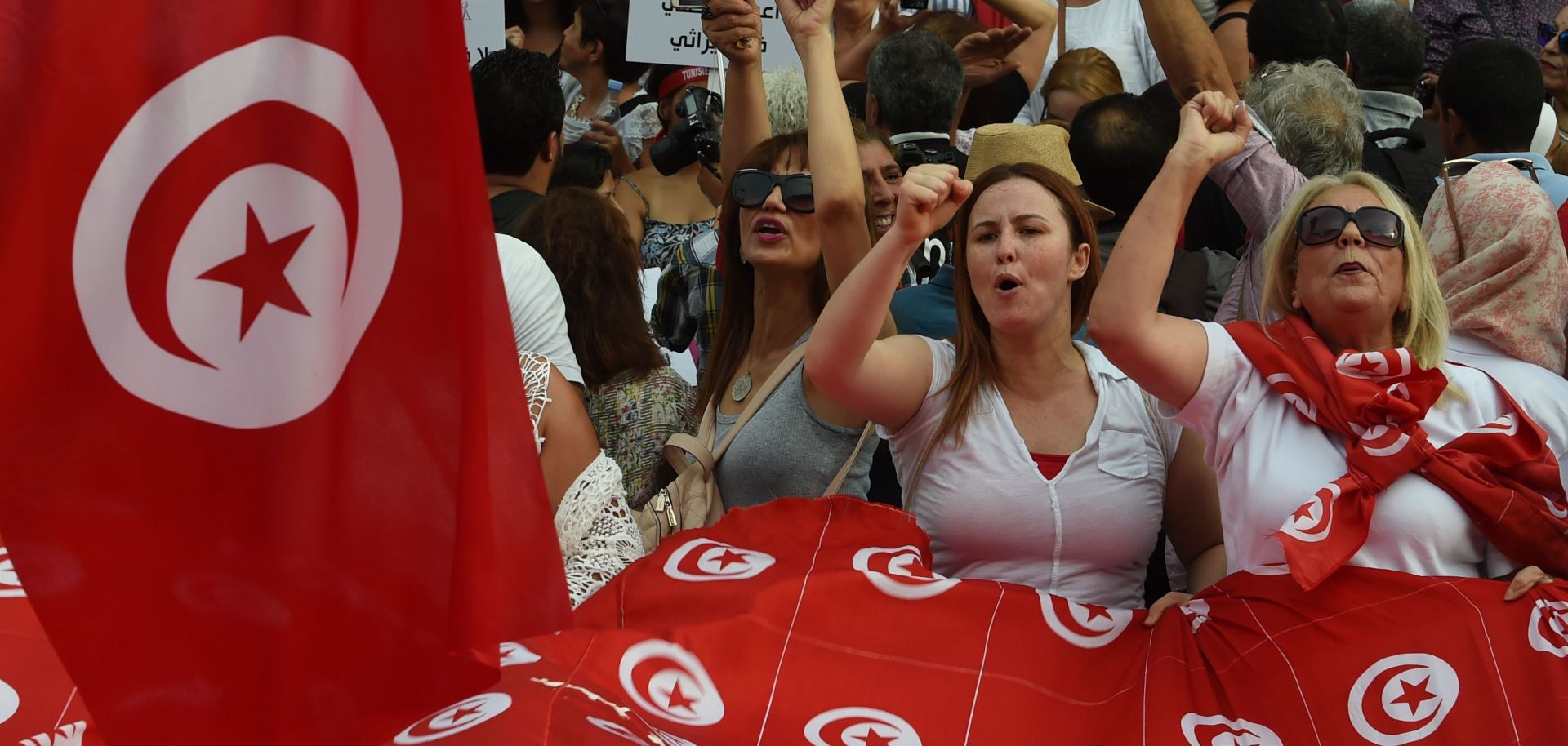ASSESSMENTS
Tunisia's Two Sheikhs Are Frenemies No More
Sep 27, 2018 | 09:00 GMT

Tunisian women chant slogans and wave their national flag during a demonstration on Aug. 13, 2018, to mark Tunisia's Women's Day and to demand equal inheritance rights for men and women.
(FETHI BELAID/AFP/Getty Images)
Highlights
- Tunisian President Beji Caid Essebsi and Ennahda party leader Rachid Ghannouchi have parted ways politically as power rebalances in Tunisia's parliament and Caid Essebsi's Nidaa Tounes party considers joining the opposition.
- Prime Minister Youssef Chahed's government will be able to withstand votes of no confidence for now, but his alliance is weak and he will be unable to make major economic reforms.
- Caid Essebsi is likely to continue prioritizing progressive social issues in the hopes of rallying the fragmented Tunisian secular parties against Ennahda.
Subscribe Now
SubscribeAlready have an account?
